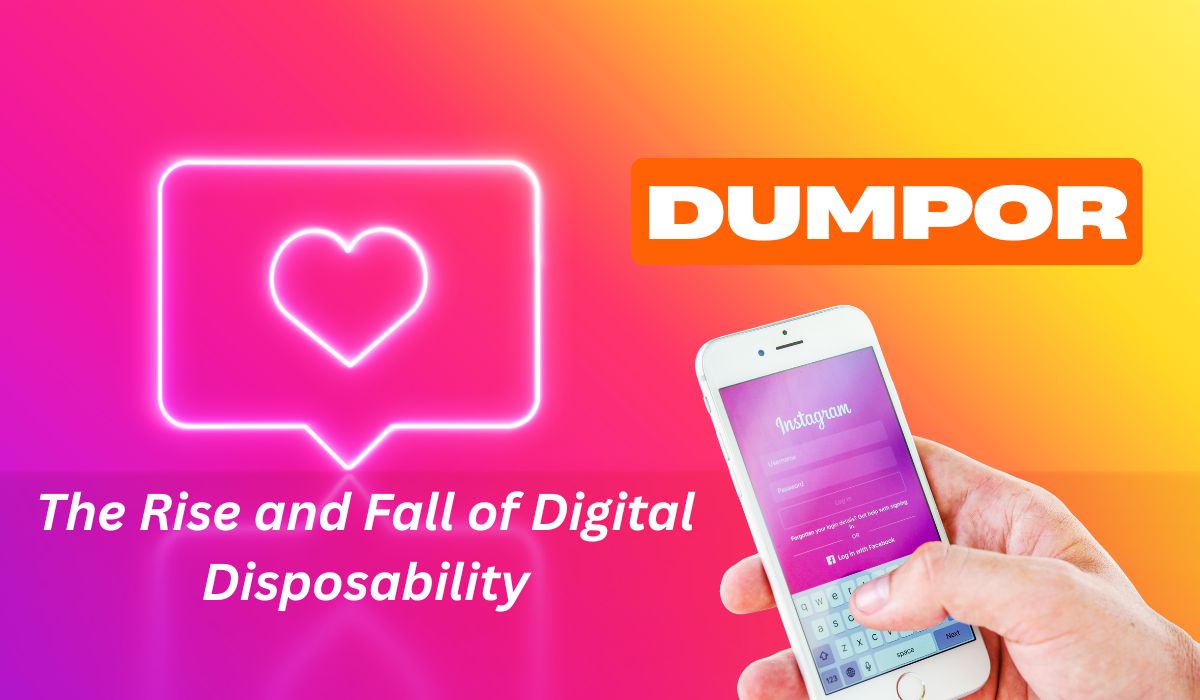We live in an age of impermanence. Tweets vanish into the ether after 24 hours. Stories disappear from Instagram. Even our most heated online arguments fade into obscurity within days. But what happens when we take this disposability to its logical extreme? Enter Dumpor—a platform built on the idea that nothing should last.
At first glance, Dumpor seems like just another social media app. You post, you scroll, you engage. But the key difference? Everything self-destructs. No archives, no recoveries, no digital footprints. It’s the internet equivalent of writing in the sand at low tide.
The question is: Why would anyone want this? And more importantly, what does it say about us?
The Allure of Ephemerality
There’s something undeniably freeing about impermanence. Think of the last time you sent a Snapchat—no pressure to craft the perfect caption, no anxiety over how it’ll look in your feed five years from now. Dumpor takes that feeling and scales it up.
For younger users, especially Gen Z, this is a feature, not a bug. They’ve grown up watching their parents’ embarrassing Facebook posts linger indefinitely. They’ve seen careers derailed by decade-old tweets. The idea of a space where mistakes don’t follow you is intoxicating.
But it’s not just about avoiding consequences. There’s a psychological comfort in knowing that whatever you share won’t be held against you later. It encourages raw, unfiltered expression—something that’s increasingly rare in a world where every like and comment is meticulously curated.
The Dark Side of Disappearing Content
Of course, nothing this simple stays innocent for long. The same features that make Dumpor liberating also make it dangerous.
Without permanence, accountability evaporates. Cyberbullying, misinformation, and even illegal content can spread unchecked because there’s no record. Platforms like Twitter and Facebook, for all their flaws, at least leave a trail. Dumpor’s entire design ensures that harmful content vanishes before anyone can properly document it.
Then there’s the emotional toll. Humans are wired to seek permanence. We keep diaries, take photos, save letters—because we want to remember. A platform where every conversation is doomed to disappear might feel weightless at first, but over time, it can make interactions feel hollow. If nothing lasts, did it even matter?
The Business of Forgetting
Dumpor isn’t the first to capitalize on ephemerality. Snapchat pioneered the concept, and others like Instagram Stories followed. But Dumpor takes it further by refusing to archive anything. No “Memories” feature, no cloud backups. Once it’s gone, it’s gone.
This raises an interesting question: Why would a company build a product designed to leave no trace? The cynical answer is engagement. If users feel safer posting freely, they’ll post more often. More posts mean more ad space, more data (even if temporary), and more eyeballs locked into the platform.
But there’s also a more profound cultural shift at play. We’re living in an era of digital exhaustion. The pressure to maintain an online persona—to be constantly “on”—is wearing people down. Dumpor offers an escape hatch: a place where you don’t have to perform, because nothing you do sticks around long enough to define you.
Will Dumpor Last?
History suggests that purely ephemeral platforms struggle in the long run. Snapchat, despite its success, eventually added features like Memories and Discover to keep users hooked. Even the most carefree social media users seem to crave some form of permanence.
Dumpor’s most significant challenge won’t be competition—it’ll be human nature. We like to remember. We want to revisit. We like to hold onto things, even when we pretend we don’t.
Maybe Dumpor will evolve, adding just enough permanence to keep people around without losing its core appeal. Or perhaps it’ll fade away, another footnote in the endless cycle of social media trends.
FAQs About Dumpor
1. What is Dumpor?
Dumpor is a social media platform where all content—posts, messages, comments—automatically disappears after a set period. Unlike traditional social networks, nothing is archived or saved, making interactions completely ephemeral.
2. How does Dumpor work?
Users can post text, images, or videos, but everything has an expiration date. Once time runs out, the content is permanently deleted from Dumpor’s servers with no option for recovery.
3. Why would anyone use Dumpor?
Many users are drawn to the idea of a pressure-free space where they can share thoughts without worrying about long-term consequences. It’s popular among those who want to avoid digital footprints, whether for privacy reasons or just to escape the curated nature of platforms like Instagram or Facebook.
4. Is Dumpor safe?
While the disappearing content can feel liberating, it also has risks. Since posts vanish, harmful behavior (like bullying or misinformation) is more complex to track or report. Users should still be cautious about what they share and who they interact with.
5. Can deleted content ever be recovered?
No. Dumpor’s core feature is that nothing is stored permanently. Once content expires, it’s gone—no backups, no archives.
6. How is Dumpor different from Snapchat or Instagram Stories?
Snapchat and Instagram Stories allow some content to disappear, but they also offer features like Memories, archives, and cloud backups. Dumpor takes ephemerality further by ensuring nothing remains—no saved posts, no data trails.
7. Does Dumpor have ads or data collection?
While Dumpor claims not to store user data long-term, it likely still uses temporary data for ads and engagement metrics. Always read the privacy policy to understand how your information is used.
8. Could Dumpor replace traditional social media?
Probably not entirely. While some enjoy the freedom of temporary posting, most people still want a mix of ephemeral and permanent content. Platforms like Snapchat tried full ephemerality but eventually added features to retain posts, suggesting users do want some permanence.
9. What happens if someone screenshots my Dumpor post?
Unlike Snapchat, Dumpor doesn’t notify users about screenshots. Once something is shared, there’s no guarantee it won’t be saved elsewhere—so think before you post.
10. Is Dumpor just a trend, or is it here to stay?
It’s hard to say. Social media trends come and go, and while Dumpor taps into a genuine desire for privacy and spontaneity, history shows that users often drift back to platforms with more lasting features.

